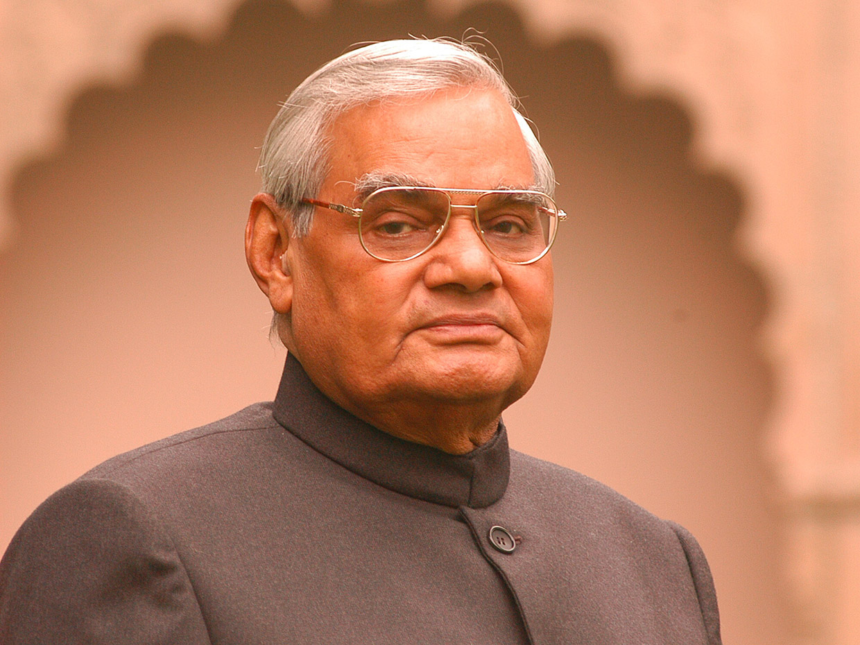Atal Bihari Vajpayee biography : From 1998 to 2004, Atal Bihari Vajpayee served as India’s prime minister. At the age of 93, he passed away in 2018.
Atal Bihari Vajpayee biography : Introduction
As India solemnly commemorates the fifth death anniversary of Atal Bihari Vajpayee on August 16, 2023, it is a moment not just to reflect on the passing of a political giant but also to celebrate the indelible mark he left on Indian politics and society. Atal Bihari Vajpayee, the former Prime Minister of India, who served the nation with distinction and dedication, passed away in 2018 at the age of 93, leaving behind a legacy that continues to inspire generations.
ALSO READ : Jaswant Singh Rawat : The Valiant Soldier Who Defended India Against Chinese Forces In 1962
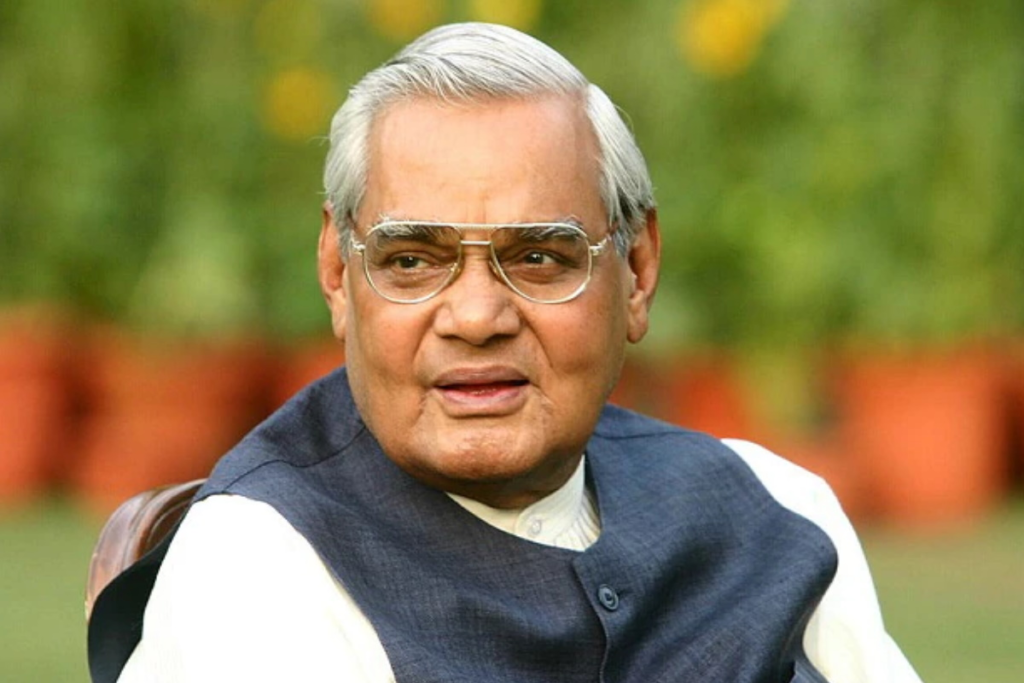
Early life and education
Atal Bihari Vajpayee was born on December 25, 1924, in Gwalior, Madhya Pradesh, into a devout Hindu Brahmin family. His father, Krishna Bihari Vajpayee, was a schoolteacher, instilling in young Atal the values of education and service to the nation. Vajpayee received his schooling at Saraswati Shishu Mandir in Gwalior and later pursued his higher education at Victoria College, now Maharani Laxmi Bai Govt. College of Excellence, where he completed his BA in Hindi, English, and Sanskrit. His academic journey continued with a post-graduation in Political Science from DAV College, Kanpur, where his interest in politics began to flourish.
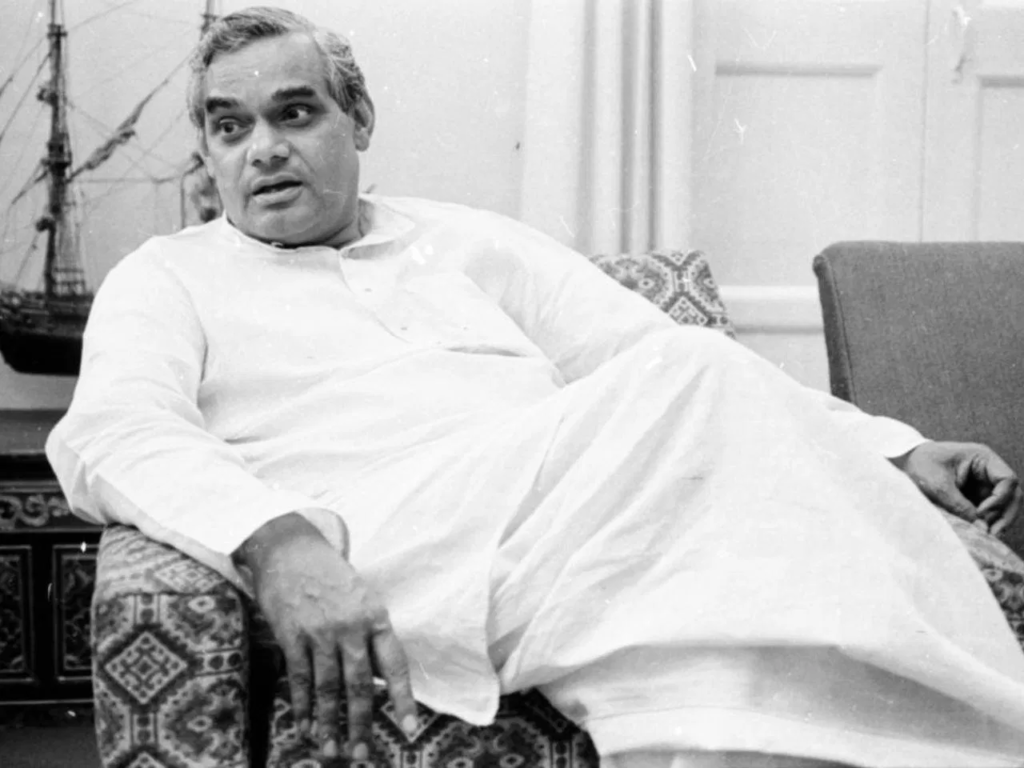
Political journey
Vajpayee’s political journey was marked by dedication and unwavering commitment to his ideals. His tryst with politics began during his student days when he actively participated in the Quit India Movement of 1942. He joined the Rashtriya Swayamsevak Sangh (RSS) in 1939 and quickly rose through the ranks, showcasing his leadership abilities. In 1951, he was handpicked by the RSS to join the newly formed Bharatiya Jana Sangh, a Hindu right-wing political party, where he served as a national secretary. Over the years, Vajpayee’s oratory skills and vision earned him admiration from both allies and adversaries alike.
In the 1957 General Elections, Vajpayee made his electoral debut, winning a seat in the Lok Sabha. His charisma and statesmanship caught the attention of then-Prime Minister Jawaharlal Nehru, who acknowledged Vajpayee’s potential as a leader. Following the demise of Deendayal Upadhyaya in 1968, Vajpayee assumed the mantle of national president of the Bharatiya Jana Sangh, steering the party through turbulent times.

The watershed moment in Vajpayee’s political career came in 1977 when he played a pivotal role in the formation of the Janata Party, a coalition that swept to power in the general elections. Vajpayee’s diplomatic acumen shone during his tenure as External Affairs Minister, where he became the first Indian to address the United Nations General Assembly in Hindi in 1977.
In 1980, the Bharatiya Jana Sangh metamorphosed into the Bharatiya Janata Party (BJP), with Vajpayee assuming the role of its founding president. Under his leadership, the BJP emerged as a formidable political force, championing the cause of Hindutva and nationalist ideologies.
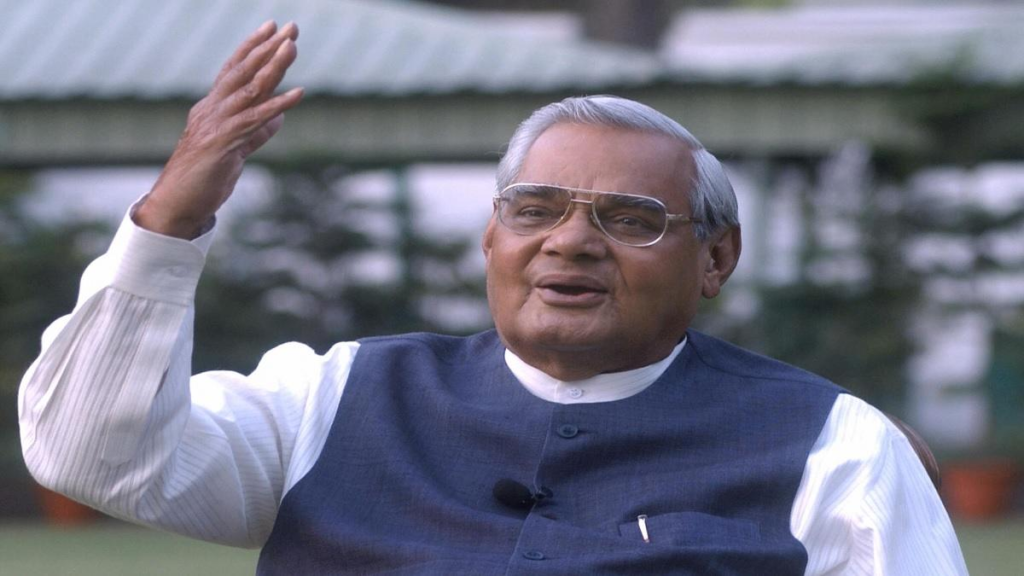
Prime ministerial tenure
Atal Bihari Vajpayee’s tenure as Prime Minister is etched in the annals of Indian political history as a period of unprecedented growth and development. He served three non-consecutive terms, the first lasting a mere 13 days in 1996, followed by a 13-month stint from 1998 to 1999, and finally a full term from 1999 to 2004. Vajpayee’s leadership was characterized by his visionary policies, including the Pokhran nuclear tests in 1998, which showcased India’s emergence as a nuclear power on the global stage.
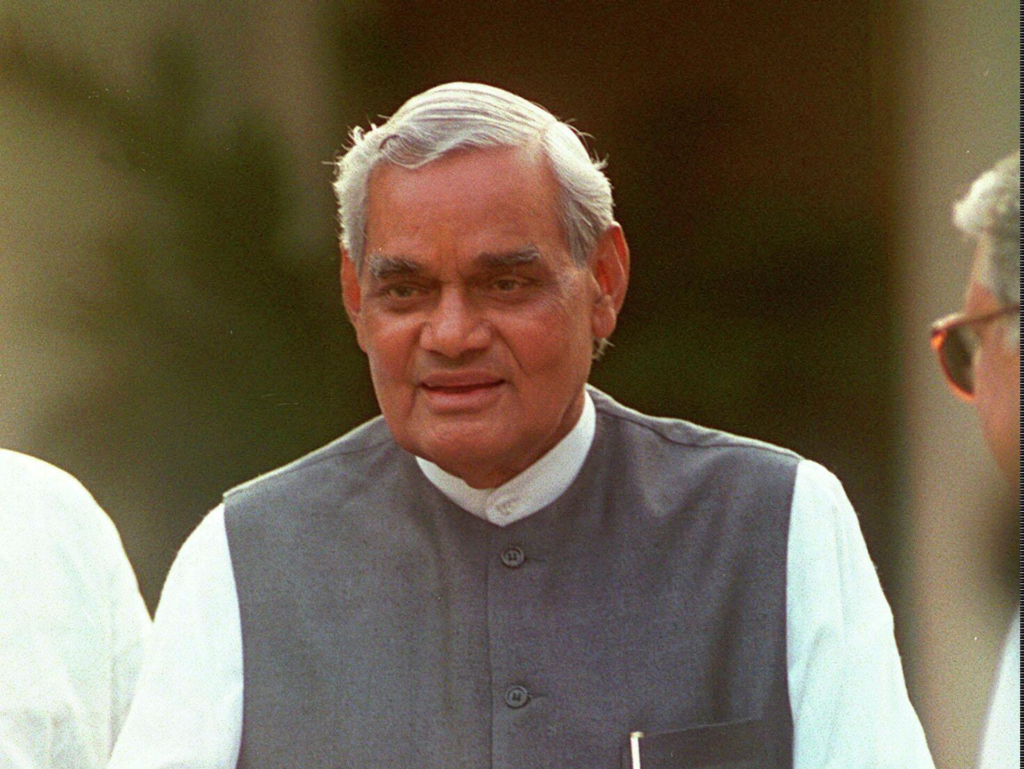
During his tenure, Vajpayee ushered in economic reforms, infrastructure development, and diplomatic outreach, earning him accolades both domestically and internationally. His statesmanship was evident in his efforts to foster peace and stability in the region, particularly through initiatives such as the Lahore Declaration and the Agra Summit.

Awards and legacy
Atal Bihari Vajpayee’s contributions to the nation were duly recognized with several honors, including the prestigious Bharat Ratna, India’s highest civilian award, conferred upon him in 2015. He was also a recipient of the Padma Vibhushan in 1992, underscoring his invaluable service to the nation.
In his later years, Vajpayee’s health began to deteriorate, culminating in his passing on August 16, 2018. His demise marked the end of an era in Indian politics, leaving behind a void that remains unfilled.

Conclusion
As we pay tribute to Atal Bihari Vajpayee on his fifth death anniversary, let us remember him not just as a statesman but as a beacon of hope and inspiration for millions. His principles of inclusive governance, secularism, and economic progress continue to guide the nation’s path towards a brighter future. Atal Bihari Vajpayee may have left this world, but his legacy lives on in the hearts and minds of every Indian who cherishes the values of democracy and nationhood.
To explore more news : Click Here
ALSO READ : Prithviraj Chauhan : The Last Hindu Emperor Of Northern India – A Saga Of Resilience And Valor







